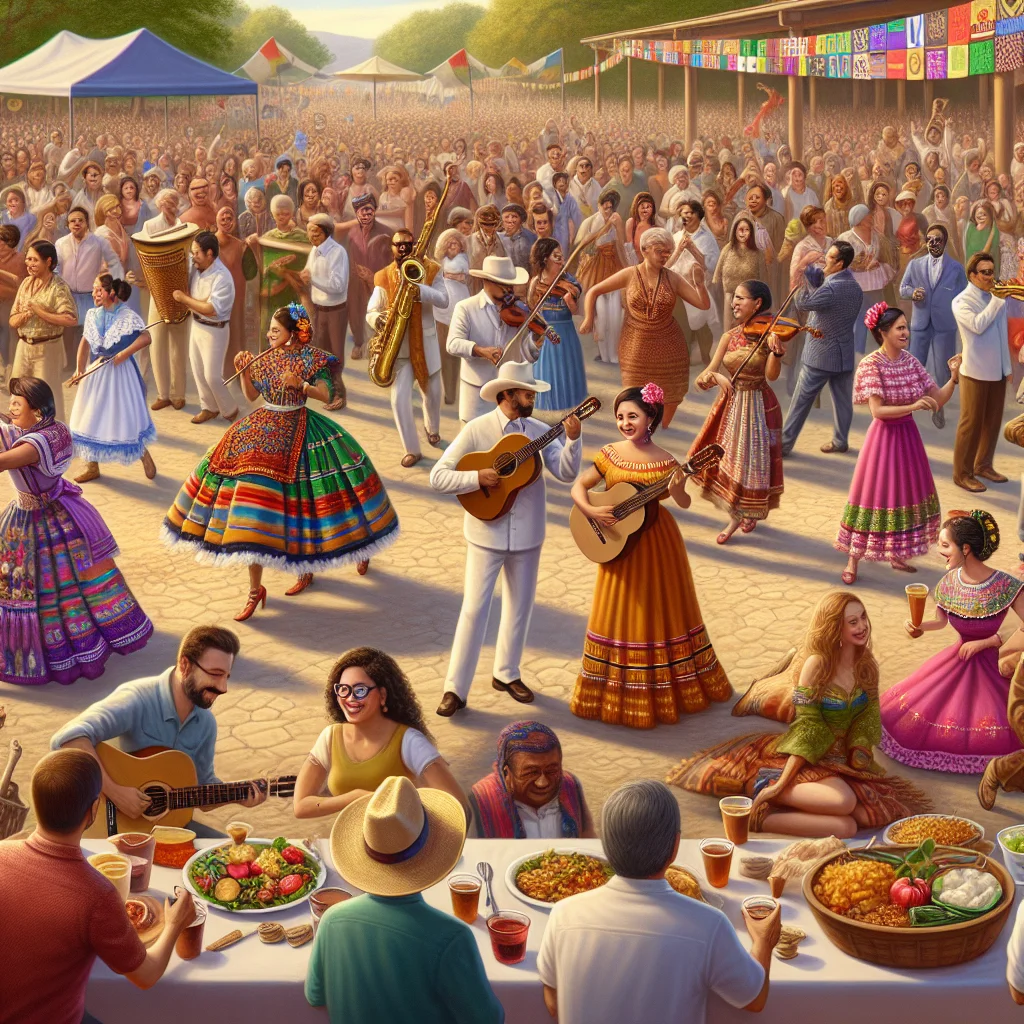Embracing Local Culture: The Art of Participation in Festivals
May 16, 2025

Travel is as much about the experiences you create as it is about the destinations you visit. One of the most enriching aspects of adventure tourism is engaging with local cultures, particularly through their vibrant festivals. These unique events not only showcase traditional practices but also offer visitors a robust understanding of local life, enhancing the overall travel experience. From color-filled parades to ancient rituals, diving into these celebrations across the globe provides increased interaction with the local communities and their rich histories.
The Significance of Cultural Festivals in Adventure Travel
Cultural festivals play an essential role in the identity of a region, marking significant events in history, religion, or the agricultural calendar. They serve as a vibrant conduit for local culture, bringing together residents and travelers alike. For instance, the Semana Santa (Holy Week) in Seville, Spain, is a week-long festival filled with processions, flamenco music, and rich culinary traditions, attracting thousands of visitors each year. Participation in such events allows for cultural exchange, creating a sense of community and shared experience, which enriches the traveler’s adventure.
How Festivals Can Transform Your Travel Experience
Engaging actively in local festivals provides a breakthrough in understanding a culture beyond mere observation. These events are perfect opportunities to interact with local people, taste authentic cuisine, and witness traditional art forms. For example, during the Diwali festival in India, visitors can participate in the joyous lighting of lamps, fireworks, and sharing of sweets. This immersive experience fosters a deeper appreciation and respect for the cultural intricacies of the local population, transcending the typical tourist experience.
Top Cultural Festivals to Experience in 2025
Traveling in 2025 offers numerous opportunities to dive headfirst into cultural festivals across the globe. Here are a few must-visit festivals:
1. Carnival of Venice, Italy
Held in February, this festival is known for its stunning masks and elaborate costumes. Visitors can engage in the art of mask-making and attend grand balls, making it a unique opportunity to experience Venetian culture.
2. Holi Festival, India
Celebrated in March, Holi symbolizes the arrival of spring. This festival of colors invites participation in joyous throwing of colored powders, embodying the spirit of joy and community.
3. Oktoberfest, Germany
Taking place from late September to the first weekend in October, this famous beer festival allows travelers to sample a wide range of local brews while enjoying traditional Bavarian cuisine and music.
4. Midsummer, Sweden
Held in late June, this festival welcomes summer with maypole dancing, floral wreaths, and traditional Swedish foods like pickled herring and new potatoes. Travelers can engage with locals as they celebrate the longest day of the year.
5. Songkran, Thailand
As the Thai New Year festival in April, Songkran is known for its spectacular water fights. It is a unique opportunity for travelers to engage in joyful water splashing activities while gaining insights into local customs and traditions.
Preparing for Festival Participation
To truly immerse yourself in local festivals, preparation is key. Here are some tips for making the most of your cultural experience:
- Research the Festival: Understand its history, customs, and what is expected of participants. This ensures greater respect and appreciation of the traditions.
- Dress Appropriately: Wearing traditional attire where possible can enhance your experience and foster goodwill with locals.
- Engage with Locals: Be open to conversations and interactions. Locals often appreciate visitors who show interest in their culture and engage in festivities.
- Be Respectful: Respect local customs and traditions, especially during religious events, to foster positive cross-cultural exchanges.
Culinary Experiences in Cultural Festivals
Food can be a remarkable entry point into understanding any culture. Many festivals are centered around unique culinary practices, making them an excellent opportunity to indulge in local delicacies. At the La Tomatina festival in Spain, for instance, people throw tomatoes at each other, but it is also an opportunity to enjoy dishes made from these tomatoes, showcasing the region’s culinary creativity. Festivals like this pivotally connect food and culture, allowing adventure travelers to taste the heartbeats of different societies.
Conclusion
Participating in local festivals during your travels not only enriches your experience but also fosters cultural understanding and appreciation. It transforms passive observation into active engagement, allowing individuals to connect deeply with the people and traditions that shape a destination. By embracing these cultural engagements, travelers can create lasting memories while respecting and learning from the vibrant local customs that define their adventures.
Back